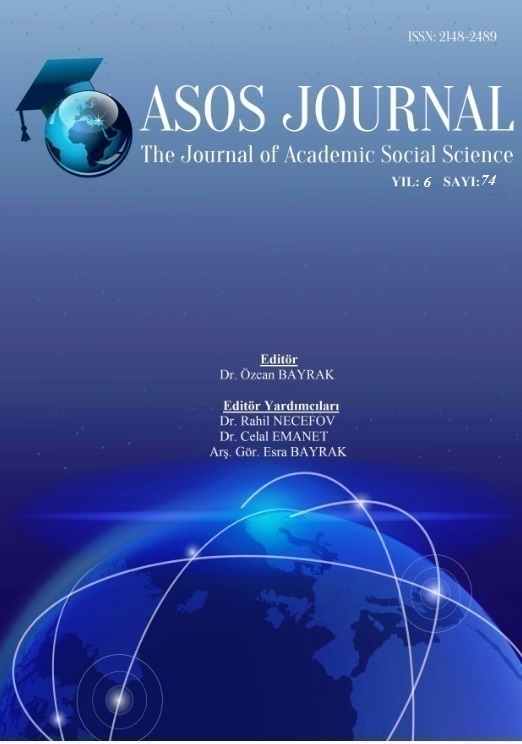Author :
Abstract
12 Mart romanları devrimci düşünceyi savunan küçük burjuva kahramanları merkezinde, 12 Mart döneminin birey ve toplum üzerindeki etkilerini anlatır. Bu etki, özellikle sol çevreler üzerinde bir yenilgi psikolojisi şeklinde tezahür etmiş ve küçük burjuva bireylerinin diğer kişisel bunalımları ile birleşerek travmatik bir hâl almıştır.12 Mart romanlarının kahramanları genellikle “devrimci aydınlar” olmalarına karşın “devrimci” kimliklerinden ziyade “küçük burjuva” kimlikleri ile öne çıkarlar. Kahramanların devrimci mücadele içindeki eylemlerinden çok, yenilgi sonrası yaşadıkları içsel çatışmalar ve bunalımlar ön plandadır. Devrimci küçük burjuva bireylerinin iç hesaplaşmaları, geniş çerçevede bireyin yaşam ve toplum karşısındaki güçsüzlük ve çaresizlik; daha dar çerçevede de 12 Mart muhtırası sonrası devrimci hareketin devlet ve güvenlik güçleri karşısındaki yenilgisi üzerine yoğunlaşır. Her iki durumda da yaşadıkları güçsüzlük ve çaresizliğin, beraberinde bir “yalnızlık” ve “değersizlik” hissini de getirdiği söylenebilir. Hayat karşısında kendini yalnız ve çaresiz hisseden devrimci küçük burjuva bireyinin, baba figürünün temsili olan devlet ve halkın büyük bir kesimi tarafından “tehlikeli” ve “zararlı” olarak görülerek tecrit edilmeye hatta yok edilmeye çalışılması onlardaki yalnızlık ve değersizlik hissini pekiştirmiştir. Kahramanların maruz kaldıkları, özellikle aşağılanmalar neticesindeki, bu yalnızlık ve değersizlik hissi romanlarda çeşitli mecazlarla anlatılmıştır. Bu çalışmada romanlarda kahramanların içinde bulundukları psikolojiyi daha etkili ve çarpıcı bir şekilde ortaya koymayı sağlayan mecazlar üzerinde durulacaktır.
Keywords
Abstract
The March 12 novels describes the effects of March 12 military intervention on the individual and society at the center of petit bourgeois protagonists who defended revolutionary thought. This effect manifested itself in particular as a defeat psychology on the leftist circles and became traumatic by combining with other personal crises of the petit bourgeois individuals. Altough protagonists of the March 12 novels are often revolutionary intellectuals their petit bourgeois identity is more decisive in the novels. The inner conflicts and crises they experienced after the defeat rather than the actions of protagonists in the revolutionary struggle are prominent. The self-questioning of revoloutionary petit bourgeois individuals, focuses on weakness and helplessness of the individual in the life and society in a broader framework; in a narrower framework, it concentrates on the defeat of revolutionary movement after the March 12 military intervention against the state and security forces. In both cases it can be said that, the weakness and helplessness they experienced caused feeling of loneliness and worthlessness. The fact that the revolutionary petit bourgeois individual who felt himself alone and helpless in the face of life, tried to be isolated and even destroyed by being seen as dangerous and harmful by the state representing the father figure and by a large part of people, reinforced the feeling of loneliness and worhlessness in them. These feelings of loneliness and worthlessness especially of the humiliations the protagonist subjected to, were narrated in various tropes in the novels. This work will focus on the tropes that enable to reveal psychology of the protagonists more effectively and strikingly.
